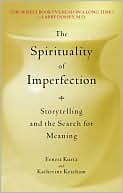As I read a piece by “Jennifer” on “the lost art of storytelling” (which I don’t believe is actually lost), it dawned on me that storytelling is a mainstay of 12-step groups.
I have been sober for 26 years, after 10 years of problem drinking in my  20s, but I bypassed Alcoholics Anonymous because I just didn’t want to do a group thing. I am not unfamiliar with how AA works, however, and have attended a meeting or two with close family members who were 12-steppers. I know that storytelling — about the struggles and triumphs of dealing with addiction — is the heart of a 12-step meeting. I’ve also shared my own alcoholism story in other venues, such as newspaper columns I’ve written.
20s, but I bypassed Alcoholics Anonymous because I just didn’t want to do a group thing. I am not unfamiliar with how AA works, however, and have attended a meeting or two with close family members who were 12-steppers. I know that storytelling — about the struggles and triumphs of dealing with addiction — is the heart of a 12-step meeting. I’ve also shared my own alcoholism story in other venues, such as newspaper columns I’ve written.
“Jennifer” made this point about storytelling and 12-step groups by way of discussing the book, The Spirituality of Imperfection: Storytelling and the Search for Meaning. She explains that the book:
… talks about the spirituality of shared imperfection through the telling of stories that occurs in AA (and likewise in other 12-step programs, e.g. Al-anon). It is through the telling of stories of hardship and pain, shame and doubt, joy and strength, experience and hope — stories of recovery — that we connect with each other and find a shared spirituality that accepts us all as okay, as imperfect and we learn and grow from our shared imperfections. These very imperfections are what enhances, not only our connection, but our spirituality, our connectedness, so that we are better, stronger as a result. It is not just through our flaws that we grow strong, but in shared imperfections – a sharing that occurs through the telling of our “stories”.
In a review on Amazon, John Moryl of Yeshiva University Library further explains:
The aim of this book is to explain the underlying spiritual — although not necessarily religious — principles of Alcoholics Anonymous. Part 1 presents the emphasis of this spirituality, which is the recognition and especially the acceptance of humans as imperfect beings. Part 2 tells how the founders of AA put spirituality to use. Part 3 discusses the benefits: release, gratitude, humility, tolerance, and forgiveness. On nearly every page, the authors retell stories and provide anecdotes from various sources: ancient Christian, Muslim, Jewish, Greek, and more. One need not have an interest in AA to benefit from this fine introduction to spirituality.
I’m intrigued and will add this book to the huge stack of books I want to read.
